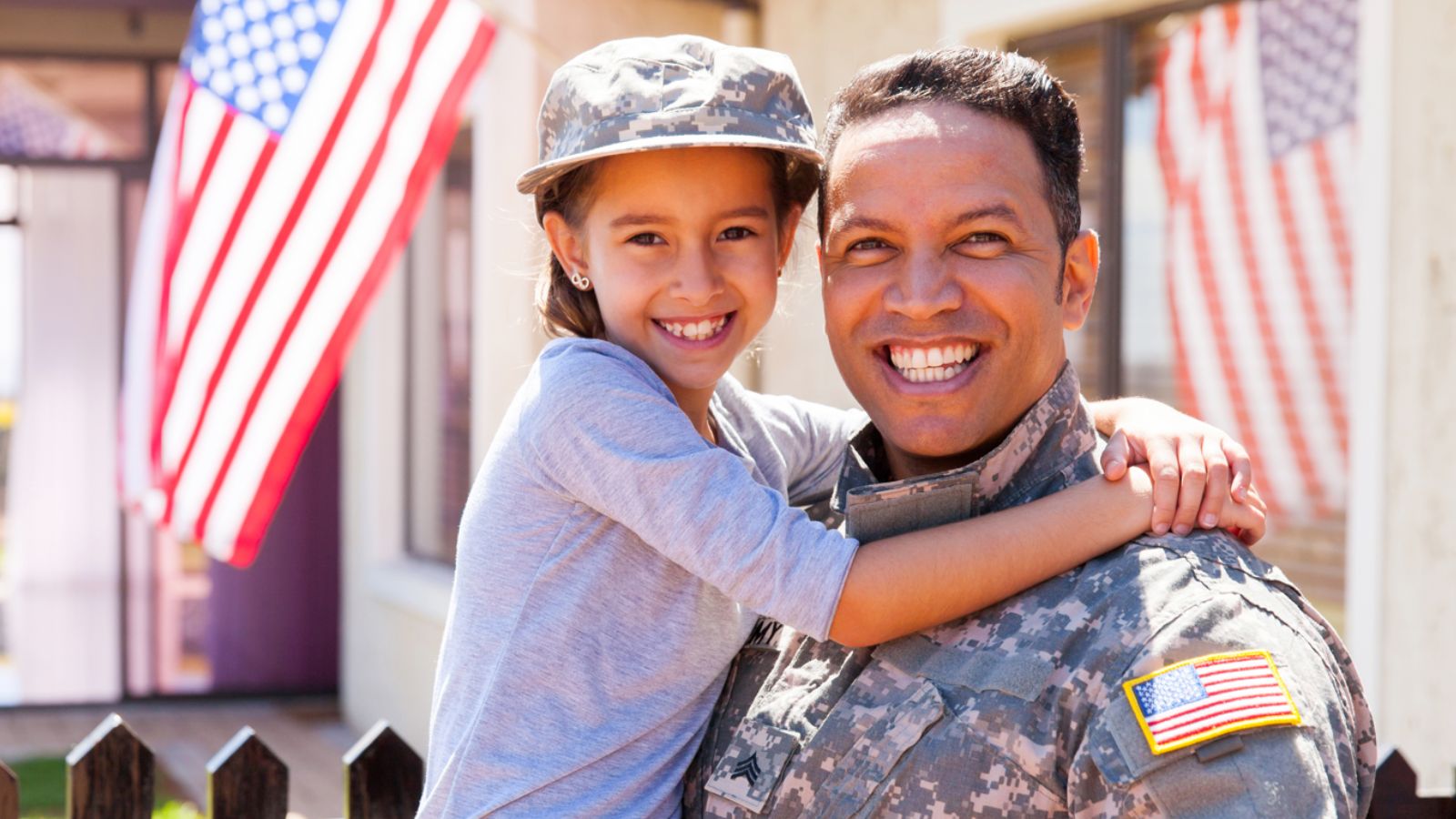A career in the military develops telltale signs that veterans display in their civilian lives. From resilience and punctuality to working well in teams, these 18 signs reveal that someone is a proud veteran of the military.
Punctuality and Discipline

Military life has a rigorous schedule that ingrains a deep sense of punctuality in veterans. They’re used to an environment that doesn’t tolerate tardiness and often demonstrates a strictly structured daily routine.
Attention to Detail

Veterans are often detail-oriented and maintain a thorough and systematic approach to their work. U.S. Veterans Magazine explains that veterans “understand the importance of precision,” which “allows them to pay high attention to detail.”
Strong Sense of Duty

Veterans have served their country, instilling a sense of duty that transfers to their civilian lives. They are often volunteers who help others without seeking recognition and exhibit loyalty to their family, friends, and country.
Adaptability and Resilience

Veterans were required to make rapid adjustments and decisions based on the situation at hand. Fluid combat situations necessitate innovative solutions with limited resources, so veterans quickly adapt to new situations and environments.
Respect for Authority

Veterans are used to a clear chain of command and will show deference to figures of authority in their civilian lives. They will follow the rules and regulations conscientiously and offer constructive feedback with a respectful tone.
Camaraderie and Brotherhood

Camaraderie in the military is well documented. Serving in units overseas in often dangerous scenarios forms strong bonds and a unique shared experience. Veterans often proudly talk of the camaraderie and brotherhood they experienced in the military.
Commitment to Physical Fitness

Soldiers are often more active than civilians and regularly engage in physical work and exercise. Veterans understand the importance of physical exercise in maintaining good health and engage in team sports.
Tactical and Strategic Thinking

Strategic thinking—developing an integrated and comprehensive plan to achieve a long-term goal—is a necessity of military operations. Veterans use the skills they learned in the military when executing strategic plans to navigate daily challenges.
Respect for the Flag

Veterans will be aware of proper flag etiquette, for example, where it must be placed on speaker’s platforms and where it should face. Veterans of Foreign Wars explains that veterans who aren’t in uniform may render the military salute, while others place their right hand over their heart when standing to attention.
Appreciation for Structure and Order

The military is a highly structured organization with clear leadership and roles for service members. Veterans carry this preference for organized environments and clear instructions in their civilian lives.
Situational Awareness

In their military careers, veterans had a situational awareness of their operating environments in real-time, continuously gathering and interpreting information about terrain, weather, and friendly and hostile forces. They take this situational awareness into their civilian lives, often assuming protective roles in group settings.
Teamwork and Leadership

RecruitMilitary notes that “from day one, teamwork is ingrained in the military community.” Veterans could only lead units once they had proven they could follow instructions, making ideal team members and leaders.
Mastery of Non-Verbal Communication

Veterans are experts in using their body language to convey messages and can recognize and interpret the non-verbal cues of others. They understand the importance of appearance and bearing in communication in the workplace and their private lives.
Pride in Service and Sacrifice

Veterans will display their military memorabilia in their homes with honor, and they will often share stories of their service with pride. Their military service is a key part of their identity that they don’t shy away from.
Lifelong Learning and Improvement

Veterans recognize that learning is a lifelong process and continually seek out opportunities for self-improvement and skill development. They embrace new technologies with enthusiasm and view challenges at work as opportunities to learn and grow.
Strong Ethical Values

Military personnel have to make tough ethical decisions that uphold the moral principles of America when serving overseas. Veterans will demonstrate that deeply ingrained honesty, integrity, and fairness in their actions at the workplace and in their private lives.
Gratitude and Humility

Veterans are often humble individuals who express appreciation when others recognize their contributions without bragging. They are quick to acknowledge contributions from others and the sacrifices of their fellow service members and their families.
Commitment to Service Beyond the Military

The White House published an article in 2021 detailing how four veterans, Jimmy Anderson, Ben Cobley, Maria Carolina González-Prats, and Claire Russo, have gone on from serving the country in the military to public service. Veterans are known for serving their communities and government in various capacities after their military careers end.
Read More: 21 Things That Will Be Lost Forever When The Boomer Generation is Gone

Baby boomers grew up in a vastly different culture, so they have what younger generations consider strange habits. An internet survey recently asked, “What will die with boomers?” Here are the top 22 answers.
21 Things That Will Be Lost Forever When The Boomer Generation is Gone
17 Religious Facts People Get Wrong All the Time

Religious beliefs and practices are often misunderstood, leading to common misconceptions. Some are just too general, others are downright out there. So, we’ll be correcting 17 widely circulated ‘facts’ about world religions.
17 Religious Facts People Get Wrong All the Time
Why People Aren’t Religious Anymore: 15 Simple Reasons

As society evolves, so does our approach to spirituality. This article looks at the subtle yet profound shift from traditional religious adherence to a more personal, evidence-based belief system.
Why People Aren’t Religious Anymore: 15 Simple Reasons
17 American Attractions That Not Even Americans Want to Visit

The United States of America—land of the free, home of the brave, and the location of some of the most ‘unique’ tourist attractions you’ll ever lay eyes on.
Get ready to chuckle, scratch your head, and maybe even facepalm as we look at 17 American attractions that not even Americans think are worth visiting.
17 American Attractions That Not Even Americans Want to Visit

